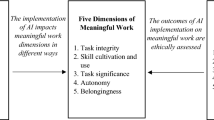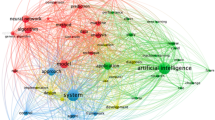Abstract
The dream of the perpetual motion charms us since millennia, the desire of machines substituting men was present already in the imperial China and the classical Rome; the medieval alchemists tried to build automata, automata showed up in the Renaissance princes’ plays. In the Aladdin fable, the sorcerer satisfies on the instant all wishes of the lamp’s owner. In other words, the fiction of omnipotence accompanies humanity from the very beginning. Is God omnipotent? So, why not humanity? Building automatic factories, digital modelling of human work, both makes realistic what looked utopian. It can perhaps be achieved an unmanned production mode, and where machines can produce whatever we can desire, endlessly. Are numbers not from zero to infinity? There is, nonetheless, an obstacle. Human desires are subjective; therefore, from the standpoint of the producers, of the automatic factory’s owner, there is a very difficult problem to go through. How to manage human desires? How to transform the desire itself in an automatic factor of the production? Digital modelling of human work is not enough; the human itself must be modelled. The full control of him/her must be achieved. It means understanding a priori each of his/her desire. It means leading him/her step by step all their lives long. It means, shortly, to transform him/her into automata. The nightmare of a bees’ or ants’ society, the nightmare of losing his/her free will comes closer and looks menacing. It looks like the black clouds of a threatening thunderstorm.
Similar content being viewed by others
Notes
To Hayek, the extended order is the way to connote capitalism.
We due to Zuboff the possibility to know two important articles by Varian.
In the experiment, the experimenter has a collection of Chinese writings, a language he does not know and which symbols he cannot distinguish from Japanese ones, but he has a set of rules showing him a set of symbols that correspond to other symbols. In this way, he can answer questions in a way that an outside observer can check as correct answers, but the experimenter didn't understand anything.
References
Dormehl L (2017) Thinking machines. The quest for artificial intelligence and where it’s taking us next. Penguin Random House, New York
Freud S (1914) On narcissism: an introduction, Kindle edn. Read Books Ltd
Kurzweil R (2005) The singularity is near. When humans transcend biology. Penguin Books, New York
Noble DF (1979) Social choice in machine design. In: Zimbalist A (ed) Case studies on the labor process. Monthly Review Press, New York, pp 100–134
Noble DF (1986) Forces of production: a social history industrial automation. Oxford University Press, New York
Norman D, Nielsen J (2012) The definition of user experience (UX). https://www.nngroup.com/articles/definition-user-experience/
O’Neil C (2016) Weapons of math destruction. How big data increases inequality and threatens democracy. Penguin Random House, UK
Risdon C (2016) Shaping behavior, by design live!—UIE Brain Sparks. https://www.uie.com/brainsparks/2016/06/30/chris-risdon-shaping-behavior-by-design-live/. Accessed 27 June 2017
Stanford University (2016) One hundred year study on artificial intelligence (AI100). Stanford University. https://ai100.stanford.edu. Accessed 27 June 2017
Varian HR (2014) Beyond big data. Business Econ 49(1):27–31
Winner L (1985) Do artifacts have politics? In Daedalus, vol 109, no. 1, Winter 1980. Reprinted in the social shaping of technology, edited by Donald A. MacKenzie and Judy Wajcman (London: Open University Press: second edition 1999)
Zuboff S (2015) Big other: surveillance capitalism and the prospects of an information civilization. J Inf Technol 30:75–89
Zuboff S (2016) The secret of surveillance capitalism. http://www.faz.net/aktuell/feuilleton/debatten/the-digital-debate/shoshana-zuboff-secrets-of-surveillance-capitalism-14103616.html?printPagedArticle=true#pageIndex_2. Accessed 27 June 2017
Author information
Authors and Affiliations
Corresponding author
Rights and permissions
About this article
Cite this article
Garibaldo, F., Rebecchi, E. Nothing but a human. AI & Soc 33, 313–321 (2018). https://doi.org/10.1007/s00146-017-0741-4
Received:
Accepted:
Published:
Issue Date:
DOI: https://doi.org/10.1007/s00146-017-0741-4




